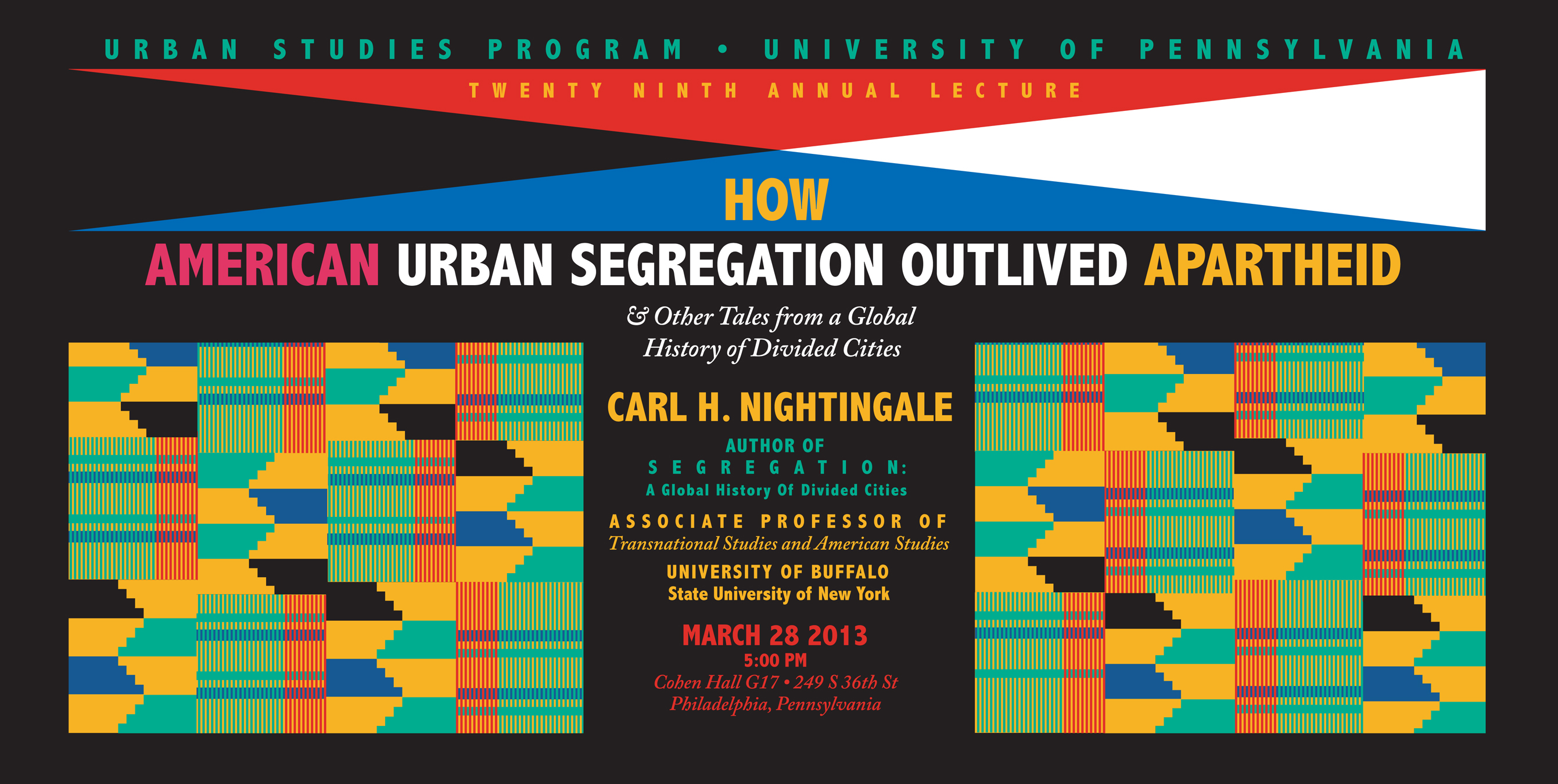Event
29th Annual Public Lecture: Carl Nightingale
"How American Urban Segregation Outlived Apartheid"

Listen to Dr. Nightingale's talk:
How American Urban Segregation Outlived Apartheid, and Other Tales from a Global History of Divided Cities
Carl H. Nightingale, Associate Professor of Transnational Studies and American Studies at the University of Buffalo, State University of New York, will deliver Urban Studies’ twenty-ninth annual lecture, entitled "How American Urban Segregation Outlived Apartheid, and Other Tales from a Global History of Divided Cities." For the lecture, Dr. Nightingale will draw from his new book Segregation: A World History of Divided Cities, published by the University of Chicago Press.
The lecture will be held Thursday, March 28, 2013 at 5:00 PM in Room G17 of Cohen Hall (249 South 36th Street). The lecture is free and open to the public.
When we think of segregation, what often comes to mind is apartheid South Africa, or the American South in the age of Jim Crow—two societies fundamentally premised on the concept of the separation of the races. But as Carl H. Nightingale shows in this magisterial history, segregation is everywhere, deforming cities and societies worldwide.
Starting with segregation’s ancient roots, and what the archaeological evidence reveals about humanity’s long-standing use of urban divisions to reinforce political and economic inequality, Nightingale then moves to the world of European colonialism. It was there, he shows, segregation based on color—and eventually on race—took hold; the British East India Company, for example, split Calcutta into “White Town” and “Black Town.” As we follow Nightingale’s story around the globe, we see that division replicated from Hong Kong to Nairobi, Baltimore to San Francisco, and more. The turn of the twentieth century saw the most aggressive segregation movements yet, as white communities almost everywhere set to rearranging whole cities along racial lines. Nightingale focuses closely on two striking examples: Johannesburg, with its state-sponsored separation, and Chicago, in which the goal of segregation was advanced by the more subtle methods of real estate markets and housing policy.
Nightingale’s first book, On the Edge: A History of Poor Black Children and Their American Dreams (Basic Books, 1993), combined ethnographic and archival research to show how broader currents in global popular and political culture affected low-income children's collective experiences in black Philadelphia. He studied at nearby Haverford College and did his graduate studies in history at Princeton University. His interests include race, critical race theory, and racial justice; Urban history; World history; Urban racial segregation in global perspective; Youth culture and activism; Youth culture as a global phenomenon; Community organizing; African American history.
Nightingale has published numerous articles on the intersections of urban history, world history and critical race theory in the American Historical Review, the Journal of Social History, and the Journal of Urban History among other places. He is the author of the weblog “Global Segregation: Human-Made Obstacles to Human Movement across Oceans, Borders, and Urban Space” which can be followed at www.globalsegregation.com. Nightingale also curates the exhibition “Buffalo Divided and Unequal: How it Happened and What People are Doing about It.”
